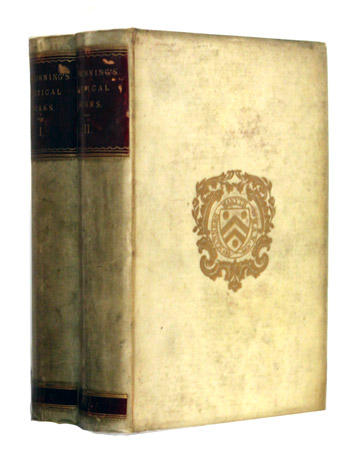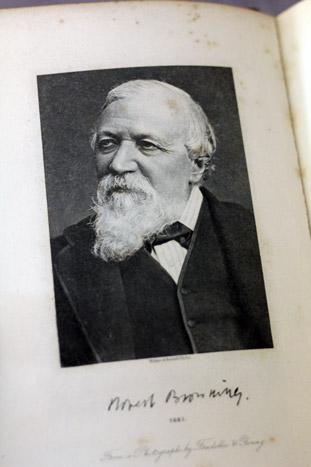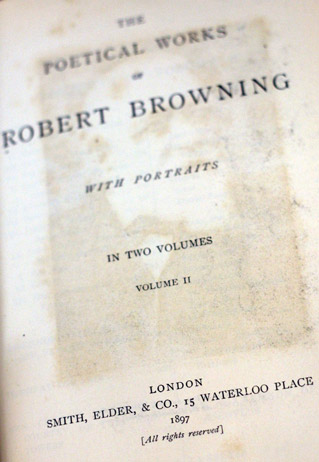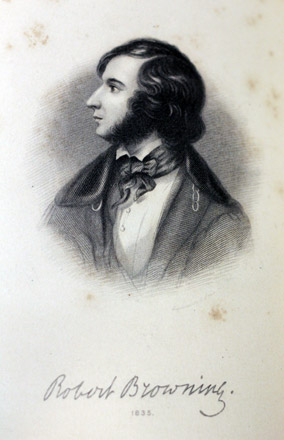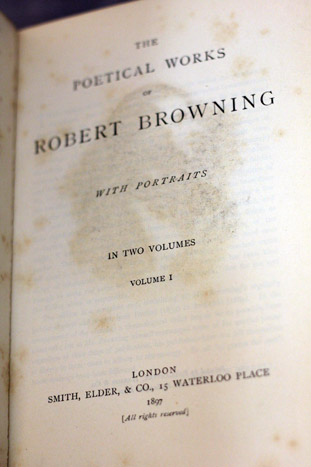About the book’s provenance:
This book was first owned by Sydney Armitage-Smith, author of the book John of Gaunt and an important official of the British Treasury and a Companion of the Order of the Bath. He most probably received this book as a prize aware from Winchester College, for achieving 1st class honours in his last term. He worked for some time as the British financial adviser to the Iranian government, trying to help the British broker a deal for Iranian oil. These negotiations eventually led to the notorious Armitage-Smith Agreement of 1920 (named after him), of which many books have been written.
The ex-libris bookplate was printed by Sir Emery Walker, a good friend of William Morris, whom he inspired to set up the Kelmscott Press. Today, his house functions as a museum for anyone interested in his life, the history of the arts and crafts in England, or typography and printing.
About Robert Browning (from Wikipedia):
Robert Browning (7 May 1812 – 12 December 1889) was an English poet and playwright whose mastery of dramatic verse, especially dramatic monologues, made him one of the foremost Victorian poets.
Browning is popularly known by his shorter poems, such as Porphyria’s Lover, My Last Duchess, Rabbi Ben Ezra, How They Brought the Good News from Ghent to Aix, and The Pied Piper of Hamelin.
His fame today rests mainly on his dramatic monologues, in which the words not only convey setting and action but also reveal the speaker’s character. Unlike a soliloquy, the meaning in a Browning dramatic monologue is not what the speaker directly reveals but what he inadvertently “gives away” about himself in the process of rationalising past actions, or “special-pleading” his case to a silent auditor in the poem. .
The Ring and the Book is an epic-length poem in which he justifies the ways of God to humanity through twelve extended blank verse monologues spoken by the principals in a trial about a murder. These monologues greatly influenced many later poets, including T. S. Eliot and Ezra Pound.
From Paracelsus:
At times I almost dream
I too have spent a life the sages’ way,
And tread once more familiar paths. Perchance
I perished in an arrogant self-reliance
Ages ago; and in that act a prayer
For one more chance went up so earnest, so
Instinct with better light let in by death,
That life was blotted out — not so completely
But scattered wrecks enough of it remain,
Dim memories, as now, when once more seems
The goal in sight again.

